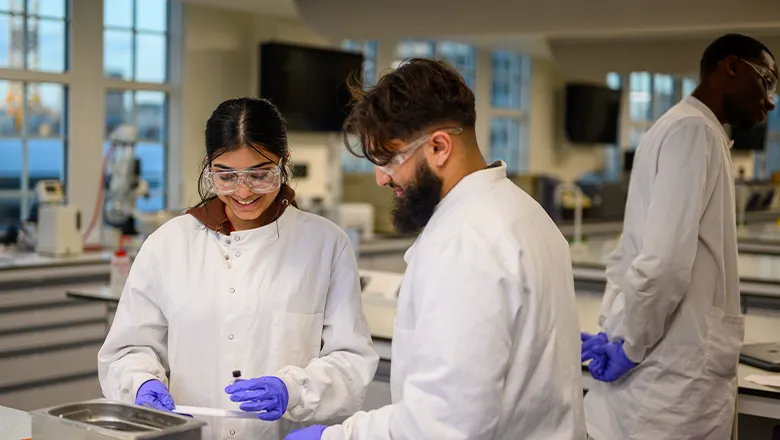
Research Integrity Champions and Advisors
Learn about these new faculty-based Research Integrity support roles.
The Research Integrity Office is committed to the promotion of good conduct and integrity in research. We support the King’s research community through the provision of training, guidance, and the development of policies and procedures, in order to safeguard public trust in King’s research.
We expect that all research undertaken at King’s is conducted with the core values of honesty, rigour, openness, transparency, care, respect and accountability in mind, to produce research of the highest standard.
These core values are aligned to the research integrity commitments of several national frameworks and organisations, which King's proudly embeds alongside our own:
The Concordat to Support Research Integrity (2025)
King’s College London is a signatory of the Concordat to Support Research Integrity (2025) and adheres to its five commitments. As an institution with research at the heart of what we do, we are committed to:
Code of Good Conduct in Research
To ensure our commitment to the highest quality and standards as applied to the conduct of research and the dissemination of research results, King's has adopted the UKRIO Code of Practice for Research. We are in the process of developing a College Code of Good Conduct in Research, and will expect all our researchers to adhere to this code.
King’s College London is a formal institutional member of the UKRN. This reflects our commitment to embed strategies for research improvement, in order to maintain and develop the highest standards of academic practice in our pursuit of research excellence. Prof Tim Newton acts as our Academic Lead and contact with the UKRN.
Commitment to fair and responsible research assessment
King's College London is committed to using fair and responsible research assessment practices to inform any recruitment, promotion, and funding decisions. Our commitment to fair and responsible research assessment is detailed in the statement below, which outlines the organisation's plan to embed open, fair, and inclusive approaches to evaluating research productivity throughout our institution. For more information on these efforts, please contact Michael Murphy, Research Information & Intelligence Specialist in the Research Management & Innovation Directorate: michael.s.murphy@kcl.ac.uk
Sorbonne Declaration
Through our membership of the Russell Group, King’s College London is a signatory of the international Sorbonne Declaration on Research Data Rights, published in January 2020.
The Sorbonne Declaration affirms universities' willingness to share data as much as possible, to enable the development and advancement of new knowledge for the benefit of society and economic progress.
It recognises the need to ensure data aligns with the FAIR data principles, that is findable, accessible, interoperable, and reusable so that information from different sources can come together in exciting and innovative ways.
The declaration acknowledges that pursuing this vision requires appropriate funding and clear legal frameworks to facilitate the sharing of data, so seeks support from funders and governments to enable this.

Learn about these new faculty-based Research Integrity support roles.

Read King's annual statement on Research Integrity.

King's College London expects all research to be conducted to a standard...

The Research Integrity Office can offer support on training and signpost...

Committed to ensuring safeguarding for research activities involving humans

Provides advice and guidance on research data management and regulations.

Empowering our Research community

Determining whether Government authorisation is required for research.